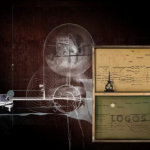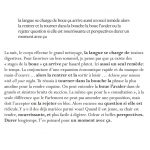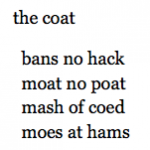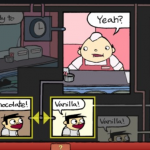#clusterMucks: Iterating synthetic-ecofeminisms
Melanie Doherty
In the course of examining a number of key concepts in New Materialism, eco-criticism, and feminist philosophy, Melanie Doherty delves into Jamie Skye Bianco's digitally generated "postnature writing." Doherty's rich knowledge of contemporary ecofeminist debates helps to contextualize Bianco's hybrid performance-based works that draw upon a database of philosophical texts and landscapes, like the Salton Sea and Dead Horse Bay, that have been marred by histories of human misuse.
Sublime Latency and Viral Premediation
Kim Knight
In Sublime Latency and Viral Premediation, Kim Knight addresses the “eco-poetics of the viral” across the biological, social, and digital. Through an analysis of the spread of digital infection, the dynamics of anti-virus software, and digital arts practices, Knight discusses a poetics of fear and desire that is instrumental to the transmission of this virtual pathology. Knight continues, drawing parallels with crowdsourced epidemiology apps that track illness and promote physical health, and makes a powerful case for what Richard Grusin has called the “premediation” of anxiety as a strategy for managing affect in the 21st Century.
Environmental Remediation
Alenda Y. Chang
Bridging Superfund sites and video games, Alenda Chang’s essay revisits media- and computation-centered definitions of remediation to extend media and mediation past the pale of digital visual technology. Through a parallel consideration of what’s known as environmental remediation—cleaning up or cordoning off polluted sites, using technological or biotechnological methods—Chang argues that human and nonhuman bodies and ecosystems are equally enmeshed in practices of communication and transformation.
*This essay was selected by Cary Wolfe for his print Gathering in the first volume of Post-Digital: dialogues and debates from electronic book review (Bloomsbury 2020).
A Vital Materialist goes to The Lego Movie
Christopher LeiseA serious (and playful) consideration of the power of “things,” Christopher Leise reviews Jane Bennett’s Vibrant Matter: A Political Ecology of Things through the lens of the Lego Movie. The implied dynamism of the manipulable modularity of the Lego world provides strong resonances with Bennett’s take on “thing-power” and distributed agency, while the crisis in the plot of the Lego Movie offers an apt illustration of the dangers of human exceptionalism discussed in Bennett’s text.
Undead Letters and Archaeologies of the Imagination: Review of Michael Joyce’s Foucault, in Winter, in the Linnaeus Garden
David CiccoriccoCiccoricco acknowledges that Michael Joyce's new novel (Foucault, in Winter, in the Linnaeus Garden), which gives a fictionalized account of Foucualt's relationship to Jean Barraque, opens Joyce up to a broader range of criticisms, though Ciccoricco also argues that by focusing on a "productive and troubled time for Foucault," Joyce ultimately offers a "compelling meditation on what we might call the nexus of madness, philosophy, and literature."
A World in Numbers: A Review of Michael Joyce, Going the Distance
Daniel PundayJoyce’s treatment of baseball in Going the Distance isn’t merely thematic, according to Punday, who believes that baseball (and its emphasis on numerical ordering) here represents the balance of the poetic and computational that defines Joyce’s electronic literature.
The Importance of Being Earnest in Flatland
Gilbert Pham-ThanhBy working through the resemblances between Tomasula's Vas: An Opera in Flatland (2004) and Edward Abbott's much earlier Flatland (1884), Pham-Thanh establishes how Tomasula "orchestrates the downfall of the traditional hegemonic masculinity" that defined Abbott's time.
An Interview with Steve Tomasula
Steve Tomasula, Kiki Benzon
Steve Tomasula discusses the development and context of his work (and TOC in particular), including relations to print and electronic literature, in this interview with Kiki Benzon.
Watch the Critters: A Reply to Stefan Herbrechter
John BruniIn this riposte to Herbrechter, John Bruni suggests that the pivot from humanism to posthumanism is not without peril. Thus, Bruni enjoins readers, even as the posthuman discourse incorporates them into its post-anthropocentric milieu, to “watch the critters” as the machine of capitalism trudges ever onward.
Beyond Repair: A Reply to John Bruni
Stefan HerbrechterStefan Herbrechter replies to John Bruni’s review essay, “Where do we find ourselves?” Building upon a dialogue that has developed across several manuscripts, Herbrechter pushes the discussion of critical posthumanism towards its radical implications. Not merely a new wave of theoretical fashion, Herbrechter identifies the posthuman as an intellectually necessary reframing of criticism altogether.
Reading Topographies of Post-Postmodernism: Review of Post-Postmodernism or, The Cultural Logic of Just-in-Time Capitalism by Jeffrey T. Nealon
Laura ShackelfordIn this essay, Laura Shackelford reviews Jeffrey T. Nealon’s “Post-Postmodernism.” Not merely an historical supplement to Fredric Jameson’s “Postmodernism,” but an attempt to devise a new critical method appropriate to our “just-in-time” present, Shacklford discusses its implications for literary practice in the 21st Century.
Beginning with “The Image” in How It Is when translating certain processes of digital language art
John Cayley
In this essay, John Cayley builds upon a critical legacy that reflects intensively on the process of literature in an age of machine language. Building on a legacy that includes ebr classics like “The Code is not the Text” and many points in between, “Beginning with ‘The Image’” points to the difficulties of translating a procedural code-based text that “finds” its substance in the repository of text known as the World Wide Web.
Poetry and Stuff: A Review of #!
John Cayley
In this essay John Cayley reviews Nick Montfort’s #!, a book of computer generated poetry and the code that generated it. Exploring the triangle of Montfort’s programs, the machines that read them, and the output presented for human readers, Cayley situates the experience of reading and writing as intrinsically virtual, powered by its sustained potentiality, rather than its definitive comprehension.
Where do we find ourselves? A review of Herbrechter’s “Critical Posthumanism”
John BruniIn his review of Stefan Herbrechter’s Posthumanism: A Critical Analysis, John Bruni addresses the technoscientific and philosophical varieties of posthumanism, and considers the necessity of moving beyond the “dehumanizing” effects of technocentric theories of cultural evolution. This critical project seeks to preserve freedom and agency, rejecting a concept of posthumanism as a side-effect of innovation in favor of one that sees change itself arising from social processes.
Convergent Devices, Dissonant Genres: Tracking the “Future” of Electronic Literature on the iPad
Anastasia Salter
Salter's "Convergent Devices, Dissonant Genres" assesses the implications of the iPad for the state of literature. Looking at "traditional" approaches that re-mediate print for digital devices, "enhanced" approaches which add "special features" to extant texts and forms, pre-tablet eliterature re-experienced in the new environment, and finally the creation of original apps with literary qualities, Salter's work is a critical document of the impact a single interface can have on the development of literary culture in the 21st Century.